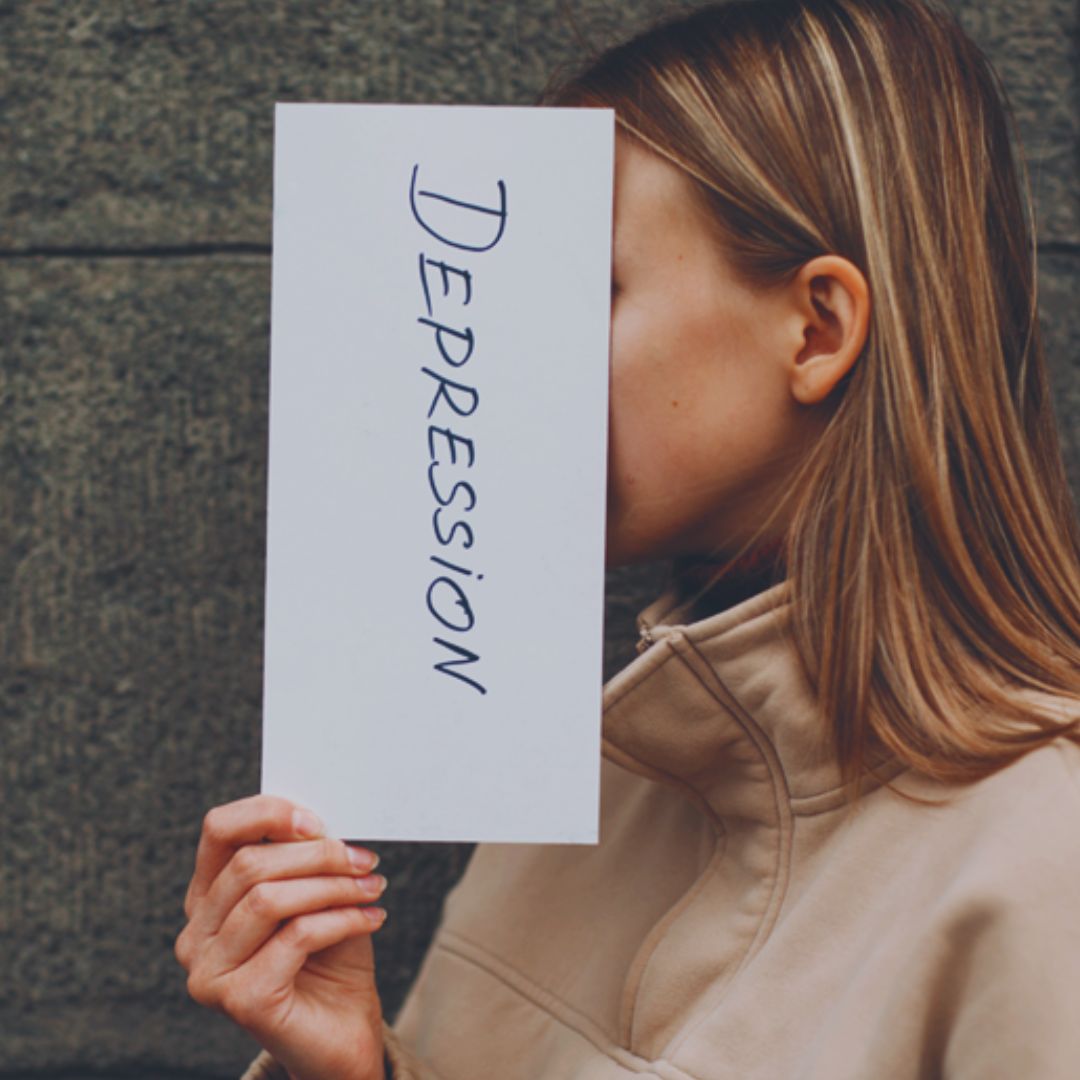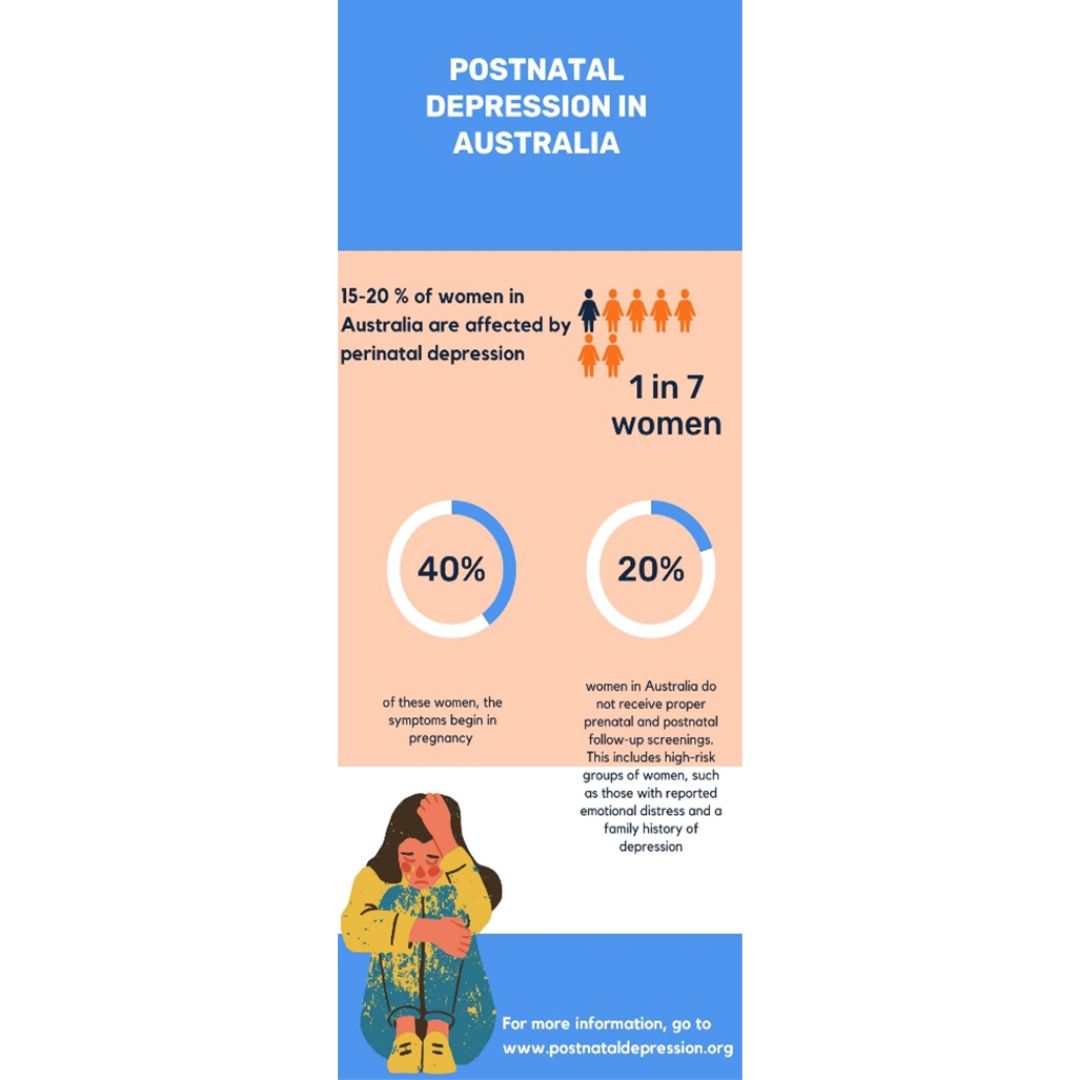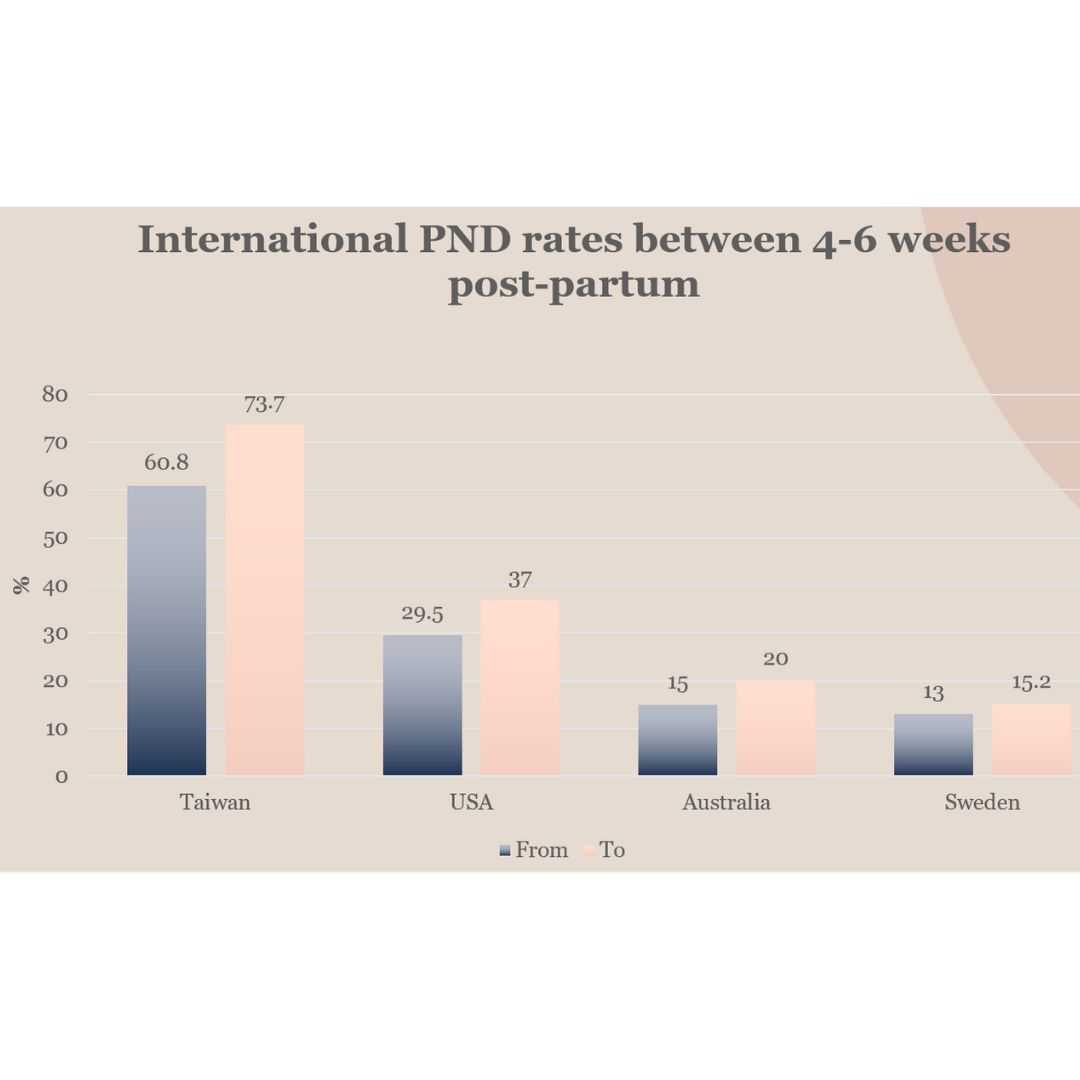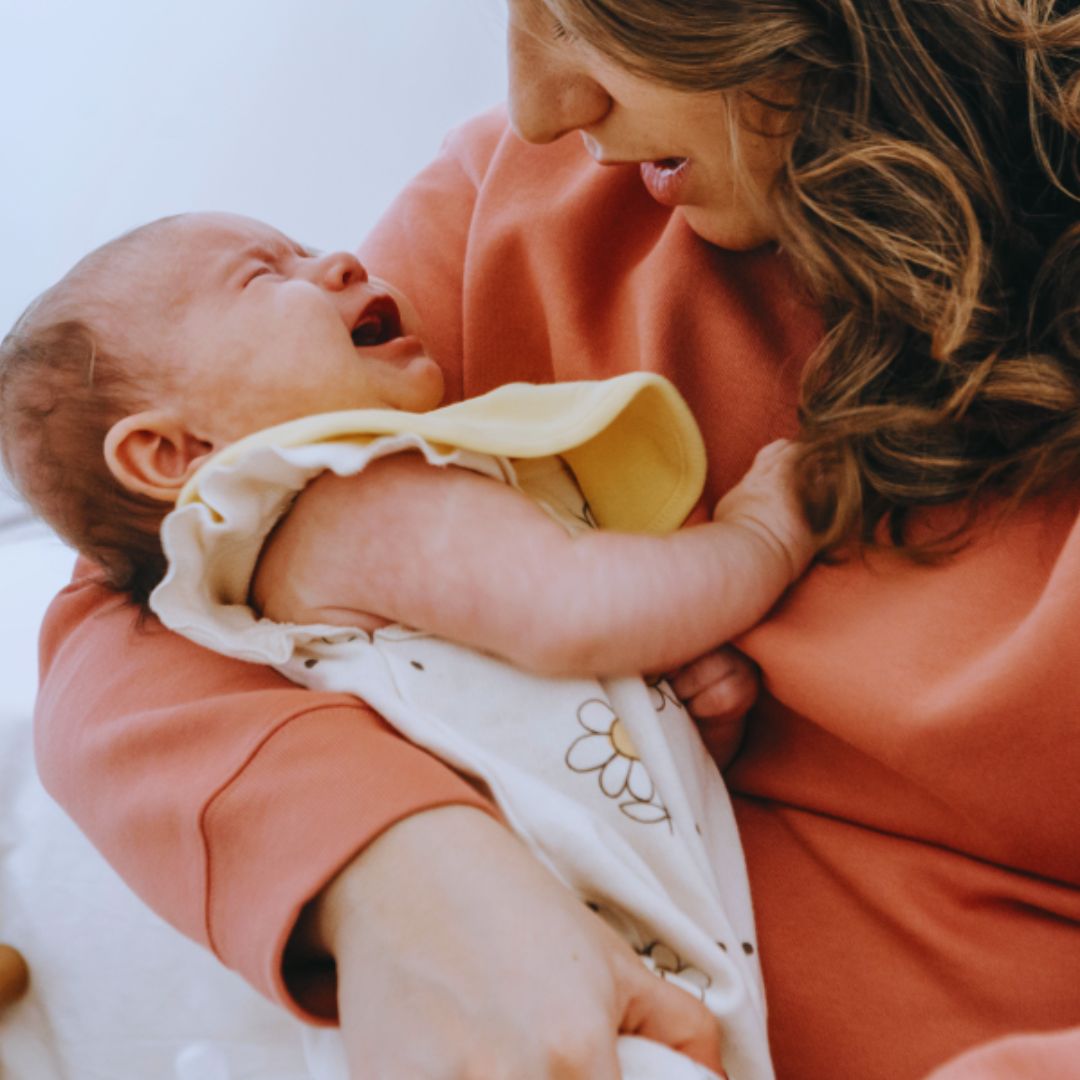Postnatal depression can affect 15-20% of women and about 10% of men, as reported by nurturewellbeing.com. As a result of postnatal depression, a woman can struggle with the new norm of being a new mum and dealing with various challenges such as hormonal changes, postbirth pains, anxiety, sleep deprivation, breastfeeding and taking care of a new baby. Infant massage can help alleviate postnatal depression and facilitate mother-baby interaction.

How is postnatal depression classified?
According to Healthdirect Australia, postnatal depression is different from baby blues and is more severe. While every new parent may feel tiredness, exhaustion and overwhelmed, postnatal depression involves feelings of sadness, hopelessness and numbness that last longer and interfere with the mother's ability to cope with and enjoy daily life. Postnatal depression also has physical symptoms such as poor sleep or insomnia and changes in eating or appetite.Baby massage can help alleviate postnatal depression and also assist with baby blues.
.jpg)
How can baby massage help with postnatal depression?
Infant massage, performed by the mother, has been popular in many cultures, particularly in India and is growing in popularity in Western countries (Vivette Glover, Katsuno Onozawa, Alison Hodgkinson, 2002). Baby massage offers numerous benefits, not just for babies but also for parents. Some of the common benefits include:
- Decreasing stress hormone levels in both mothers and babies (IMIS).
- Reducing crying.
- Improving sleep, which can help mothers struggling with postnatal depression.
As stated by psychologytoday.com, baby massage can be considered a complementary approach that may help relieve postpartum depression symptoms and enhance mother-infant interactions. We will now explore in more detail how baby massage can help with postnatal depression.
Findings and Studies:
Postnatal depression is more common than we think and can affect both mothers-to-be and new mums and dads.
- Postnatal depression is common, affecting up to 1 in 5 new mums and 1 in 10 new dads (healthdirect.gov.au).
- It is different from baby blues that are related to hormonal changes which usually last for no more than 2 weeks without requiring medical intervention.
- Postnatal anxiety can coexist with postnatal depression. Although some symptoms are similar, they may require different medical treatments. In postnatal depression, the mood is usually affected, while in postnatal anxiety, there are feelings of worry or fear that are difficult to control. Both conditions can make it challenging to cope with daily activities.
Postnatal depression statistics in Australia:

- 15-20% of women in Australia are affected by perinatal depression (1 in 7).
- For 40% of these women, the symptoms begin during pregnancy (blackdoginstitute.org.au).
- 1 in 5 women in Australia do not receive proper prenatal and postnatal follow-up screenings, including high-risk groups such as those with reported emotional distress and a family history of depression.
Prevalence rates of postpartum depression internationally within 4-6 weeks postpartum (PMC PubMed Central):

- Sweden has the lowest rate (between 13% and 15.2%).
- The USA has a rate between 29.5% and 37%.
- Taiwan has the highest rate (between 60.8% and 73.7%).
Baby massage as a tool to help with postnatal depression
Postnatal depression can have a disruptive impact on mother-infant bonding and attachment. Mothers struggling with postnatal depression are less likely to engage in bonding behaviours such as making eye contact, talking in an engaging voice and playing with their baby.
Baby massage is known to help facilitate the bonding process. Bonding, as defined by research psychologists Kennal and Klaus, is "a unique relationship between two people that is specific and endures throughout time".
Bonding is a major component of infant massage
Bonding is a major component of infant massage, and here's how it can be beneficial:
- Touch is a powerful tool: It is intimate and requires trust between the giver and receiver. It helps individuals feel more connected and in the case of baby massage, it fosters a form of skin-to-skin contact.
- The "permission sequence": When massaging a baby, the process begins with making eye contact, rubbing hands in front of the baby, and asking, "Do you want a massage now?"
- Babies have a highly developed sense of smell: While newborns cannot recognise their caregivers by sight, they can identify them by their natural scent and are drawn to the scent of breast milk. Being the person who massages the baby allows them to find comfort in the caregiver's scent.
- Responding appropriately to the baby's cues: By responding appropriately to whether it's the right time to massage the baby, mothers can feel more secure and increase their self-esteem by knowing how to respond to their baby's needs.
In this process, not only does the mother benefit from learning infant massage but the baby also benefits. Developing strong parental bonds and attachment during infancy is crucial for the overall well-being of a child.
Studies:
An interesting article from psychologytoday.com reports on the importance of baby massage in alleviating postnatal depression.
A study in Norway explored the experience of mothers learning infant massage and the role massage played in attachment. The participants were invited to a group intervention for mothers who struggled with the transition to motherhood. The study consisted of two parts:
- The first part involved providing the mothers with a course on infant massage.
- The second part provided education, support, and facilitated connection between the mothers in the group.
The mothers reported feeling more attached to their babies and more attuned to their baby's cues. They expressed how massage gave them a tool to communicate with their baby when they initially didn't know how to do it. Overall, the mothers had positive experiences with infant massage and saw this activity as an opportunity for emotional and physical connection with their babies (Midtsund et al., 2018).
Infant massage may be particularly beneficial for mothers with preterm babies. Mothers with preterm babies (babies born before 37 weeks of gestation) have a higher risk of developing postnatal depression. Researchers found that mothers performing massage on their preterm babies showed greater improvements in mood and the quality of care they provided to their babies (Lotfalipour et al., 2019).
Another study reported on by psychologytoday.com explored the effects of baby massage on mothers with elevated scores on the Edinburgh Postnatal Depression Scale (EPDS) at four weeks postpartum. The mothers were randomly assigned to attend a baby massage class or a support group. After six intervention sessions and a one-year follow-up, both groups showed reduced depression scores. However, the massage group achieved a greater reduction in EPDS score (87%) compared to the support group (63%) over the study period (O'Higgins et al., 2008).
Infant massage can increase oxytocin levels and reduce stress.
It is believed that infant massage can:
- Reduce stress for both mothers and babies: By learning how to appropriately respond to their baby's cues through massage, mothers can better handle their baby's needs, leading to increased feelings of security and confidence.
- Additionally, massage increases oxytocin levels, also known as "the love hormone," which helps foster the bonding process between mother and baby and has a positive effect on the mother's mood.
Could oxytocin have therapeutic benefits?
According to psychologytoday.com, it is not yet clear if oxytocin has proven therapeutic benefits. Researchers have explored its relevance to social symptoms of autism, as well as pain, depression and anxiety. Mothers with postnatal depression often have difficulties interacting and bonding with their babies. A small, controlled study has shown that participating in a massage class can help these mothers interact better with their babies. The mechanisms behind this improvement are not clear but may include learning to understand their babies' cues and the release of oxytocin (Vivette Glover, Katsuno Onozawa, Alison Hodgkinson, 2002).
Infant massage improves sleep in babies.
When babies sleep well, mothers can also sleep better and feel more rested and less exhausted.
Baby massage improves sleep in babies through the following mechanisms:
- Overall relaxation of skeletal muscles: Gentle and repetitive strokes during massage help relax the body, leading to better sleep.
- Increased serotonin levels: Serotonin is a hormone that regulates sleep patterns and plays a role in regulating mood, appetite, and other bodily functions.
- Increased melatonin levels: Melatonin, released more at night to induce sleep, is associated with napping when released during daytime hours.
Infant massage reduces crying
Reducing crying in babies can help new mothers better cope with frustration and feelings of not being able to handle a given situation. A baby who cries less also reduces stress for the mother.
During massage, the stimulation of a baby's central nervous system leads to the production of more serotonin (a feel-good chemical) and less cortisol (a stress hormone). This results in a decrease in heart rate and breathing rate, leading to relaxation and reduced crying.

In conclusion
A research report by sciencedirect.com titled "Infant massage improves mother-infant interaction for mothers with postnatal depression" (Katsuno Onozawa, Vivette Glover, Diana Adams, Neena Modi, R. Channi Kumar) concludes that learning baby massage by mothers, including those with postnatal depression, is an effective treatment to facilitate mother-baby interactions.
Infant massage can be a valuable complementary therapy for mothers with postnatal depression and should be offered as an option to help improve the interaction between the mother and her baby.
As suggested in the report at sciencedirect.com, the early postpartum months are crucial for establishing a satisfactory relationship between mother and infant. Enhancing interaction through positive interventions during this period can be clinically beneficial. It is important to note that improving postnatal depression does not necessarily improve mother-baby interaction. Therefore, direct attempts to enhance the quality of mother-infant interactions, independent of improving depression, have shown more success.
Learning baby massage should be included as a component of treatment for postnatal depression. While it is not a substitute for medical intervention when necessary, it may be benefitical as an option to mothers with depression.
Why are the benefits of baby massage still not well-known?
Baby massage is an ancient practice widely utilised in India and Asia. It is starting to gain recognition in Western cultures after studies have highlighted its benefits. Increasing evidence supports baby massage as a complementary intervention for various issues.
How can baby massage classes be implemented in hospitals and mothers' groups?
Hospitals can offer baby massage as an option or part of a treatment plan for mothers experiencing postnatal depression. Certified Infant Massage Instructors (CIMIs) and Paediatric Massage Consultants (PMCs), are able to deliver baby massage classes within hospitals or medical centers that provide services for mothers with postnatal depression.
Bibliography:
healthdirect.gov.au
psychologytoday.com
postpartumdepression.org
ncbi.nlm.nih.gov
romper.com
Infant Massage Information Service (IMIS) Training Manual and Student Handbook for Correspondence Study
parents.com
babycentre.co.uk
sciencedirect.com